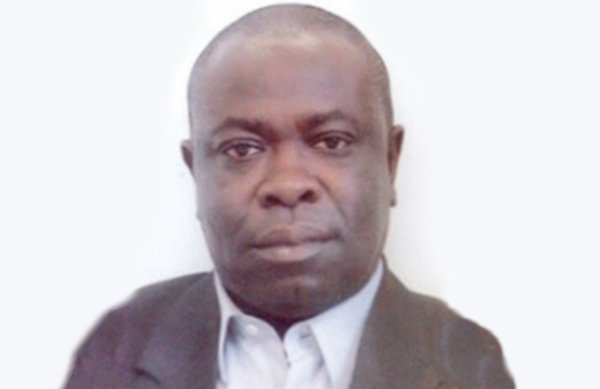
Much ado about nothing is a classic by the great British playwright, poet and actor, William Shakespeare, penned and dramatised in the early 16th century. Rich in romantic comedy, intrigue and action, it is a play about the length humans would travel to distract, obfuscate and prevaricate to achieve, well, nothing that could not have been freely given in the first place. Anyone who followed the screening panels by the Peoples Democratic Party last week, and that of the All Progressives Congress concluded a couple of days ago, would have wondered why Atiku Abubakar’s victory could not have simply been announced without further ado, sparing the public the suspense. Conversely, barring an unforeseen calamity for him, Asiwaju Bola Ahmed Tinubu should also emerge as the winner of his party’s primary contest. You cannot deny a man with the widest network and deepest pocket and expect peace to reign inside the tent. Tinubu is poised to win the APC contest not because he is the ‘best’ in all respects but, more importantly, because he is the one the northern power brokers consider easier to beat at the polls, especially given Atiku’s stranglehold on a big chunk of the northern electorate. In addition, Atiku, a mainstream Muslim (his first wife is of Yoruba ancestry), can reach corners in the South that Tinubu cannot in the North. Though a Muslim by birth, Tinubu is seen in the north as only a fair-weather Muslim.
The APC screening panel led by the former party chairman, John Odigie-Oyegun, had a long list of questions for the aspirants: “Do you have dual citizenship?” “Are you subject to investigation by the Economic and Financial Crimes Commission?” “Have you been arraigned by the Code of Conduct Bureau?” “Have you ever been declared bankrupt?” etc, etc. Pity that in this day of acute sensitivity to the female gender in public life, the questions did not include one on whether any of them had ever committed adultery or molested a woman in the past. Imagine, if that was made a disqualifying offence, how many of the aspirants would have survived? The show was indeed a theatre; a sitcom designed to entertain than to inform. All the aspirants should have been invited to a ‘Town Hall’ meeting for a series of open debates in front of an audience and the cameras. They should have been compelled to debate each other on policy and direction. The free-flowing, spontaneous questions from the audience would have been more informative, transparent and beneficial to some candidates while eliminating (better still, disqualifying) the pretenders.
Upon retired Major General Muhammadu Buhari’s emergence as the APC’s standard-bearer in 2014, there was an assumption that the baton would be passed to Tinubu after his (Buhari) two terms in office. It was a reasonable assumption given the personal sacrifice he made to ensure victory for the party. Tinubu subsequently became the most powerful figure outside government since APC came into office in 2015. It is a credit to the man, who was bestowed with the accolade, ‘national leader’ (no such equivalence in other parties), that he has played the game of heir apparent rather cleverly, by not openly falling out with anyone in Aso Rock, until now. Never mind the kerfuffle generated by his Yoruba idiomatic expression on Buhari at a campaign rally, a couple of days ago, his real detractor is the vice president, Yemi Osinbajo. By choosing to run for president, Osinbajo had stripped Tinubu of his hitherto air of invincibility. He had turned him into a mere party hack. As consequence, that opened the floodgates to all comers—the barber, the shoemaker and the candlestick maker—to contemplate and imagine being Mr President as well. It is the APC’s “#MeToo” moment. Without Osinbajo coming out as he did, the APC primary would have been nothing more than a coronation of the anointed.
Let us be fair and frank in equal measure. Osinbajo owes his political prominence to Tinubu like so many others in the corridors of power do across the country. Tinubu had held Osinbajo in his palm as his political capital; his not so secret weapon. It would not have been outside the realm of imagination to have seen Osinbajo leading the chorus as campaign manager for Tinubu. To suddenly have that prospect snatched away from him in his hour of need must stick in the gullets. Tinubu is human after all. It is a stab in the front for him and his legions of supporters in the APC and across Nigeria. Osinbajo is in the race not because he had an original design for the presidency. He is running for president because he succumbed to the hype built up around his holier-than-thou image. He would lose in a general election against even the weakest PDP candidate from the North because, ironically, in the eyes of the northern intelligentsia, he has shown himself to be an ‘unreliable’ quantity. It is precisely for the same reason that he stands to lose at the conclusion of the APC primary as you read.
That said, Tinubu is no longer the sure-bet asset to the APC that he once was. His win at the primary would be against the better judgement of the party apparatchik. After all is said and done, the best outcome for Nigeria, for the 2023 election, would be the emergence of a president from the North for two compelling reasons. First, it would finally lay the unedifying contraption of ‘zoning’ to rest. Zoning is a PDP invention, which should have led to the emergence of a candidate from the southern part of Nigeria, instead of Atiku, a northerner. Similarly, there was a ‘gentleman’s agreement’ within the APC that, following Buhari (a two-term President from the North), power should ‘shift’ to the South. Let us be clear on this. There is nothing wrong in principle with having the most important office in the land filled by people from diverse ethnic affiliations at different times. But, it is wrong to make that mandatory by setting it in stone. It should be a campaign issue, yes. The argument ought to be put to the people in a fair and open contest. The second reason is the need to renew, rejig, restructure and reconstitute (or whatever) Nigeria. It is an open secret that Nigeria, as it is, is not viable. Everyone sitting around the table at the Federal Executive Council meeting knows. Everyone plays along, cheerfully passing on the juice jug at the dinner table.
Many people fought a long, and hard battle to chase the military out of power in this country. A lot had hoped for a Sovereign National Conference to settle the national question once and for all. Then, suddenly, power fell into their laps in 1999 as the military made a quick exit from Aso Rock. The momentum for change was lost there and then. Many of the leading political figures in government today were in the trenches fighting for a new Nigeria. So, what happened to them once they got into power? They became staunch defenders of the status quo. Power, it is said, is the ultimate aphrodisiac. Election of a northern president in 2023 would see the likes of Tinubu, (himself banished into exile for many years by the military) resume the campaign for ‘change’. He has a vast array of networks and an unrivalled war chest to throw the spanner into the works for any administration, even with the coercive apparatus of the state behind it. Being out of power, and on the fringe of policy-making would be a rude awakening for him and his ilk. The anger and frustration thus generated could be used to galvanise public opinion in the direction of a just cause; the imperative of a fundamental change of course in Nigeria.
[email protected]
Copyright PUNCH.
All rights reserved. This material, and other digital content on this website, may not be reproduced, published, broadcast, rewritten or redistributed in whole or in part without prior express written permission from PUNCH.
Contact: [email protected]





